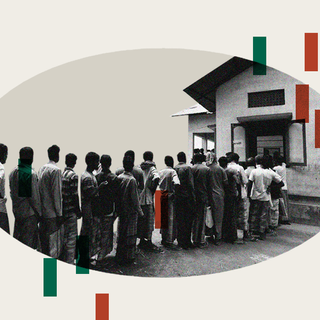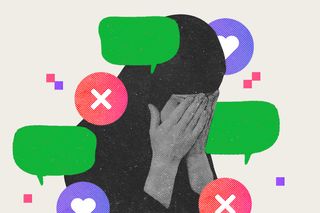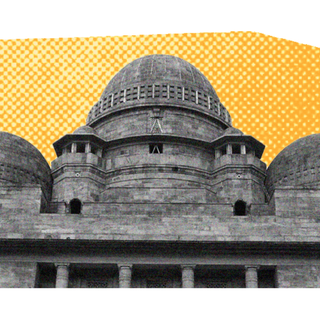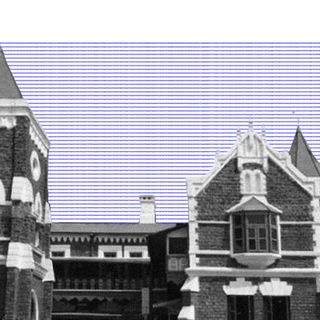
For Young Indian Muslims, Dating Apps Mimic Real Life Bigotry
“It’s like I am not supposed to be here… [People] think that all Muslim women wear burqa and don’t have any personality or opinions of their own.”

Dating apps were originally conceptualized as liberal, progressive, and democratic spaces. As a modern invention, it was presumed that the biases of the old world will be left behind and ultimately become redundant.
Today, dating apps are neither democratic spaces nor egalitarian ones where social identities become obsolete. The virtual space is now as discriminatory and vitriolic as the real world, especially for young Muslims trying to navigate this virtual world.
When Sahil*, a 26-year-old Muslim man is asked if he has faced any discrimination on dating apps, he says there have been so many incidents that he no longer knows what classifies as Islamophobia and what is a joke. He says that what irritates him the most is when discriminatory and hateful observations are passed in the name of humor and one is expected to just laugh it off. Once, when he called out such discriminatory humor on Tinder, was told that he should not be “as serious as the Taliban” and simply take it as a joke.
He adds, “Another common statement I keep hearing is that I am not like other Muslim men. They have a very negative view of Islam and Muslim men and keep differentiating me from the others. How do I tell them that this is not a compliment but just subtle Islamophobia?” This notion of the existence of a “good” Muslim and a “bad” Muslim is not new. What is concealed behind comments like the ones Sahil hears is the fact that they are based on disparaging both Islam and Muslims.
Imran*, 23, recalls a similar incident of casual bigotry, where a woman on Bumble asked if he would ever have sex with his female cousin. Despite establishing that he is not comfortable with this line of discussion, she kept asking if he would do it “if forced.” Exasperated, when he asked her if she would do it with her male cousin, she replied, “Nahi, par tumlog me toh hota hai na aisa.” (No, but isn’t this common with you people.)
Another time, when he was having sex with a woman he met on Bumble, she said, “Sahi ho raha hai musalmano ke saath. Aisa hi hona chahiye” (Muslims are being treated how they deserve [in this country]. This is how it should be). He still sometimes wonders if that was just part of dirty talk or an outright moment of violence on his identity.
To be a Muslim woman on a dating app comes with a wholly new set of challenges. Sana, 21, says that very often people are surprised to see her on dating apps. “There is always an element of surprise in their tone. It’s like I am not supposed to be here. I feel that people have a very one-dimensional view of Muslim women, thanks to media and popular representation. They think that all Muslim women wear burqa and don’t have any personalities or opinions of their own. So, when they see me on a dating app expressing my choice, there is always a surprise. And that is infuriating.”
Related on The Swaddle:
‘Sulli Deals’ Exposed the Common Roots of Misogyny and Islamophobia
Zoya*, 26, echoes the sentiment of carrying the double burden of being a Muslim and a woman on dating apps. “To be a Muslim woman on a dating app is an experience in itself. Sometimes, this identity is invoked as an innocent icebreaker along the lines of ‘Hey, it’s so good to talk to you. You are not like other Muslim girls.’ Sometimes, it is more blatant, like ‘Does the Taliban know that you are here?’”
What these stories underline is the fact that social and religious identities don’t really leave you in the virtual world. None of the people I spoke to had entered religious details on any of these apps. None of them had any visible marker of their religious identity and some of their names were secular-sounding as well. Yet, the Islamophobia and subtle discrimination commonplace in the real world seeped into the virtual world as well.
What is also interesting to note is that all these incidents happened to people in metropolitan cities, which are more privileged spaces. Hence, the fact that people made no effort to conceal their biases is confounding.
It’s also important to note that facing discrimination on dating apps is different from receiving hate in other virtual spaces, like Facebook. While the latter may come from anonymous trolls, the former is perpetuated by individuals one might be hoping to connect with. The resulting psychological impact of the realization that one will be discriminated against on the basis of religious identity – regardless of other perceived similarities – is thus incalculable.
This psychological harm is further worsened by things such as the recent Bulli Bai incident, where photos of socially active Muslim women were used to “auction” them online. Such acts of violence becoming increasingly commonplace impact not only the psyche of Muslim women but also their ability to feel safe in the virtual world. For instance, in light of these auctioning incidents, how many Muslim women will continue to feel comfortable putting out their photos or even interacting with strangers on dating apps?
Such questions are never-ending for young Muslims. And although there are dating apps that specifically cater to Muslims, that is not a solution. If anything, they mimic the ghettoization of Muslims in the real world by relegating them to a limited space if they want to avoid discrimination. Instead, we must examine spaces that already exist and all the insidious ways in which they are not welcoming to certain sections of society.
*All names have been changed to maintain anonymity
Farnaz Fatima has a postgraduate degree in Politics and International Studies. Currently working in advertising, she is interested in exploring the intersections of gender, mental health, and popular culture through her writing.
Related


Minor’s Consent for Sexual Relations Not Legally Valid: Bombay HC
